In Part One – An Introduction to Hinterkaifeck, we discovered the history and backstory of the ill-fated farmstead and it’s residents. Now, in Part Two – Hinterkaifeck; The Timeline, we look at the events leading up to the eventual discovery of the victims and arrival of the authorities.
Mid – Late March 1922
I. It appears there is a general agreement that the Munich newspaper found on the property by Andreas is the first notable event during the month of March. As mentioned right at the beginning Hinterkaifeck was located 43 miles north of the city, no one on the farm subscribed to the newspaper and it was not available to purchase in the nearby towns. Now, this piece of possible evidence could have easily been passed over if it were not for the fact that Andreas Gruber chose to specifically mention it to the postman, enquiring if perhaps it had been dropped and was meant to be delivered to another household. Was the patriarch of Hinterkaifeck being unusually helpful in trying to get lost mail to the intended recipient or, as some have suggested, was he concerned about a person, or persons, coming from Munich?
II. The key for the front door of the farmhouse goes missing, meaning that it can now only be locked by the deadbolt. Sources either put this happening on the same day as a set of footprints being found (we’re getting to those) or a couple of days before. Hearsay is that Andreas Gruber questioned the rest of his family about the key’s disappearance and all of them swore that they had not moved it nor given it to another person. If this is an accurate retelling then we have to wonder why he should jump to the conclusion that a member of his own house would give away a key, and just who’s possession he thought this key was now in. It perhaps points to a similar paranoia or worry to that caused by the newspaper. Also, how do we know that this conversation occurred if all who were present were victims of murder only a couple, or a few, days later. Below is an excerpt from an interview conducted almost 30 years later with Jakob Siegl, at this point the last surviving of those who discovered the Hinterkaifeck crime scene.
‘ “On Friday afternoon,” says Siegl, “I stopped by the old Gruber from Hinterkaifeck in the field and we talked. Then Gruber told me that he saw two tracks in the snow that led to his farm, but I won’t leave again. I asked if he missed anything. ‘Nothing,’ he said, ‘just the house key, He’s gone.’ I wanted to help him search the yard. But ‘No’ he said, ‘I’ll do it myself, I don’t need anyone’. He was a deadly dumb old man…” ‘
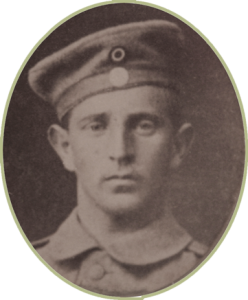
III. Sounds in the attic; the mysterious sounds of footsteps in the attic are mentioned very liberally across the Hinterkaifeck crime story. There are recounts of them happening even during Krescence’s time at the farm and occurring with enough frequency to send Andreas Gruber up there several times to investigate. Here we cannot know for sure if it was a one-off event or something that plagued the farmhouse for many months. Some sources only mention the footsteps on the same day as the missing keys and that this was the only time the sounds occurred and were investigated by Andreas. Did they really happen and, if they did, did Andreas really not find anything up there or did he know just what was going on his attic and was keeping it hidden from his family?
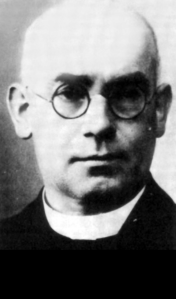
IV. The final ‘incident’ in our mid – late March collective is one that is not well documented and, if it did happen, could have nothing to do with the murders or perhaps it opens up some other theories. The church in Grobern was the one attended every Sunday by the residents of Hinterkaifeck and also their neighbours. In fact, Viktoria sang in the choir and would walk there with two other members slightly earlier than her family so they could prepare for the weekly service. At some point in the month of March 700 Gold Marks are found in a confessional. The Pastor at the time, Pastor Hass, was definite in his statement attributing this to the Gruber-Gabriel household, saying that in a conversation he had with Viktoria Gabriel she admitted that it was her who had left it. Why was the money left, was it intended for the church or was it found before someone else could collect it and Viktoria had no choice but to pretend it was a donation? Why would we think that was even a possible theory? Well, Johann Schiebebauer (son of Lorenz and his first wife Viktoria) would claim that he had seen Viktoria Gabriel in the cemetery of the Waidhofen church with a stranger, whom she slapped across the face. I am afraid that I have been unable to find the original interview or statement regarding this so, for now, there are no more details.
29th – 30th March 1922
V. The infamous ‘tracks in the snow’, mentioned to not only Lorenz but also Jakob Siegl (see above quote), neither of whom were Andreas’s biggest fans. According to Lorenz Schiebebauer he was approached by Andreas on the morning of 30th March 1922 and the man proceeded to tell him about finding footprints in the fresh snow the previous night. These tracks had led to the door of the engine house on which the lock had been torn open and, worryingly, there were no footprints to be found leaving the farm. Andreas had investigated but found no one present, however he also mentioned to Lorenz that there were impressions of ‘crushing tools’ on the door to the feed room. Now, the engine house offered no way to enter the main farmhouse, but the feed room did (there is a floorplan below). Was the perpetrator already in the house on the night of 29th March or was this simply burglars trying their luck, as was Andreas’s belief according to Lorenz. In this statement Lorenz does not mention his reaction or the ending of the conversation but there are some sources who state that he offered Andreas one of his guns as they did not keep any on Hinterkaifeck and so that he may protect his property and family. Apparently, Andreas refused, stating that nothing had been taken and the apparent burglars had left the farm.
Here Andreas seems to contradict himself again, he has gone to the trouble of telling Lorenz, a man who he does not have a friendly past with, about this apparent break-in but when concern is raised and help offered, he seems to brush it off. Was he just being a good neighbour, again very out of character, and warning Lorenz of possible thieves in the area or was he shaken enough by it to feel he had to mention it to somebody? Or, and we have to stretch a little here, could it be possible that both Lorenz and Jakob conjured up the footprint story? Why would Lorenz offer help to a man whom he very publicly hated, who apparently denied him the woman he wanted to marry and forced paternity of a son that may not be his upon him? These tracks were not seen by authorities, I imagine they would soon have vanished either with the next snow fall or just the basic comings and goings of a busy working farm. It would certainly be very helpful to have a mysterious intruder to point to once the gruesome scene was discovered and there would be no one left to contradict this story.
VI. On the night of 30th March 1922, a violent quarrel is said to have broken out within the Hinterkaifeck household, it is not known how it began or what it was about but it was terrible enough to cause Viktoria Gabriel to flee from the house in ‘hysterics’. She ran into the woods and was missing for several hours, according to some sources several neighbours even ended up joining the search as the night was very cold and the weather bad, it was feared she could become very unwell if not found soon enough. When discovered Viktoria was still visibly upset but calm enough to be led back to the house.
31st March 1922
VII. On Friday 31st March 1922 young Cazilia Gabriel was scolded for falling asleep during her lesson at the school in Grobern, as an explanation she related the above incident (Viktoria’s fleeing the house) and stated that she had not slept. It seems that the young girl had also been a part of the search party. This event was related in a statement by her classmate Sophie Fuchs, who would also later testify that this would be the last day she would see her friend.
Sidenote; In a statement made by Sophie Fuchs many years later [1951] she claims that Cazilia told her classmates that Andreas had hit Viktoria.
VIII. At around 5pm two women arrived at Hinterkaifeck; they were sisters named Franziska and Maria Baumgartner. Maria was to start work at Hinterkaifeck as the new maid that day, Krescence (the ex-maid) would say in a later statement that she believed that there had been no new maid at Hinterkaifeck since she had left. Franziska would stay at the farm for approximately an hour, meeting first Cazilia Gruber (the Grandmother), then Andreas and Viktoria. Although nothing happened whilst she was there to make her feel uneasy about leaving her sister, she would tell authorities in her 1932 statement that ‘the farm just seemed so incredibly lonely to me’. She would also recount as how her sister, Maria, would call her back again as she went to leave ‘to shake my hand once more’.
There were stories that Franziska had told people she had seen someone looking down at them from the roof of the farmhouse as she was leaving, however in the same statement (May 2nd 1932) she would deny this, stating that the people saying this had made it up themselves.
Sidenote: you can read a little more about Maria here – Maria Baumgartner
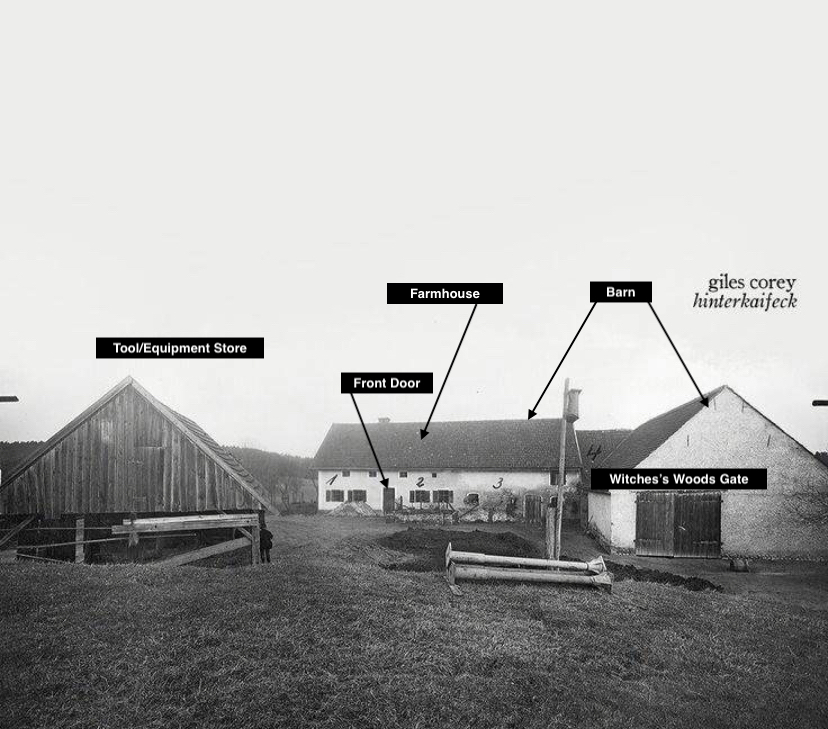
1st April 1922
IX. At around 3.30am a local farmer, Simon Reiblander, is cycling home from visiting his girlfriend/fiance (?), his route takes him past the gate that leads to the Hinterkaifeck farmhouse and then along the edge of the woods that border the property. There he sees two men stood at the edge of the trees, who appear to be talking in hushed voices. As they spot him, they cease their conversation and turn to hide their faces as he rides past them. It is not until he hears of the murders at Hinterkaifeck does Simon think any more of this encounter.
X. On the morning of Saturday 1st April, it is noted that Cazilia Gabriel is not in school, it is quite unusual for the family to not send her however the story that she had told her teacher and classmates is still fresh in their minds. Perhaps Cazilia is still feeling tired, or perhaps her Mother ran away again? It is officially recorded but no attempt is made to contact the family at Hinterkaifeck.
XI. At approximately midday two men approach the farm, brothers Hans and Eduard Schirovsky who were, at that time, travelling coffee salesman. They had rented a room from the Ofele Brewery in the nearby town of Schrobenhausen and were calling at Hinterkaifeck in order to obtain a sale. Despite repeatedly knocking at the door of the farmhouse they could not raise any answer, in fact the only sounds they could hear were that of the farm dog and the cattle. Now, whether Hans and Eduard found this frustrating because they’d arranged an appointment at Hinterkaifeck or whether they were just really desperate for a sale (it doesn’t say in their statement), they then chose to check the other doors and look through the windows. Everything was locked tight and there was nothing to be seen, except for the engine house door which was open (which supports the footsteps/break-in story). Upon leaving the farm, and before returning to their lodgings, Hans and Eduard told a few of the villagers that they had not been able to raise anyone at Hinterkaifeck, including Lorenz and Jakob Siegl.
XII. Between the hours of 3pm and 5pm two hunters stop at the farm in the hopes of buying some food from them before continuing on. Again, just like the coffee salesmen, they fail to raise any answer from the residents of the house. They also note how empty and quiet the farmyard is, with not even a wandering chicken to be seen, nor smoke from the chimney to signal a dinner being cooked. (unfortunately, I cannot locate the original statement containing the names of the hunters, this paragraph will be updated if I do)
XIII. Around 11.30pm a carpenter named Michael Plockl is walking home, his path takes him along the edge of the woods that run along the Hinterkaifeck property and pretty much right past the gate that leads to the main farmhouse. Now, it is very dark, the kind of dark you get not only in the middle of a very isolated part of the countryside but also in that countryside in 1922. No streetlamps or security lights here. What this does mean however is that the faint glow emanating from the Hinterkaifeck kitchen is pretty noticeable to Michael; he doesn’t really pay too much attention to begin with as sometimes bread needs to be baked for the next day or water heated for a late wash. But then something stops him and Michael sniffs the night air. The smoke rising from the chimney has now reached him and it is foul smelling. It does not smell like burnt food nor, he later says, like flesh but it is extremely unpleasant, and he hesitates for a moment before deciding to make sure that everything is ok at the farm.
As he reaches the gate Michael turns away from his original destination and starts towards the farmhouse. He does not get far before a figure appears in front of him, as we mentioned it is very dark and what makes it even harder for him to see this person is the fact that they are pointing a light directly at his face. Michael instantly feels incredibly uneasy and stops walking but he still calls out to them, asking if everything is ok. The carpenter does not get any reply however the figure steps towards him and, he believes, raises some kind of weapon in the hand that isn’t holding the light. Deciding that now would be a great time to leave Michael turns and runs from the farm (I do not blame him), possibly sparing himself from becoming a victim too.
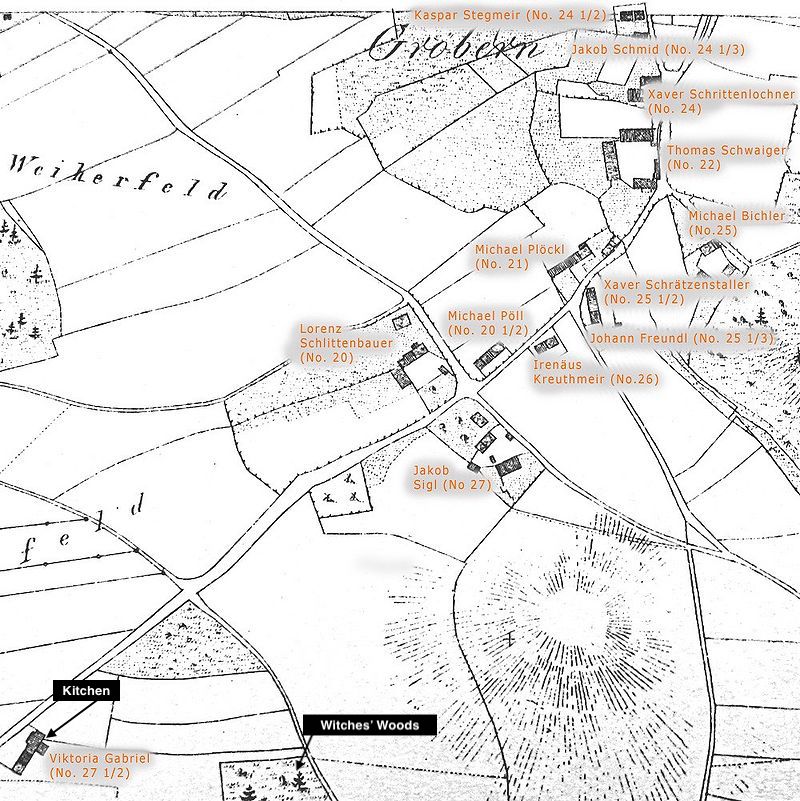
XIV. On Sunday morning two women who sing in the choir call at Hinterkaifeck to meet with Viktoria, something that they do every week so that they may walk together to the church. Usually, she is already there to meet them but not this morning. They wait for a few minutes but still no one appears from the farm, eventually deciding that Viktoria has either chosen to leave earlier that day or accompany her family instead they go on to Grobern without her. However, as the morning service begins it becomes clear that none of the Hinterkaifeck residents will be attending church that day.
XV. At some point during the afternoon a son of Jakob Siegl heads to Hinterkaifeck to purchase some lard, again there are no signs of human life and he cannot raise an answer from the house. Although a little strange he does notice that the farm animals have food and water, and that they have been let out into the field for the day. He decides to try again the next day and leaves without seeing a single person.
3rd April 1922
XVI. Once again Cazilia Gabriel is absent from school, whilst this still does not result in a check on the family it does cause some talk in Grobern and people begin to realise that no one has been able to see or speak with a resident of the farm for three days now.
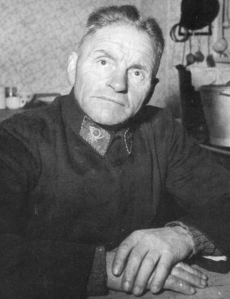
XVII. The postman, Josef Mayer, delivers the local newspaper as usual to Hinterkaifeck. He leaves the paper in the kitchen window, just as he always does, but this time he notices that little Josef’s bassinet isn’t there as it nearly always is and there is also no sign of Cazilia Gruber with whom he usually exchanges a few words with. Despite this everything else seems perfectly normal in the kitchen, there are signs of food being cooked and eaten, and the kitchen door is also half open.
4th April 1922
XVIII. Cazilia Gabriel misses another school day, this time her teacher decides that in the afternoon she will try to find somebody who knows what is going on at Hinterkaifeck or who is willing to go and check on the little girl and her family.
XIX. At around 9am a man named Albert Hofner arrives at Hinterkaifeck to make repairs on a diesel engine. After propping his bike against a tree, he notices that there is no sign of life at the front of the farmhouse, human or animal, so makes his way to the back of the house in order to let the residents of the farm know he was there and ready to start work. However, he finds the back door locked and there is no one to be seen through the kitchen window. Albert decides to wait and settles in under the same tree until someone returns from, what he presumes, work in the fields. An hour goes by and the repair man realises that he can’t wait any longer, he has another job in the area scheduled for later that day. After making his way round to the engine house he finds it locked however he notices that the padlock is small and he can easily pry open a small hook from the door and gain entry.
Albert is there for about four and a half hours with not a soul coming to see him, he completes his work, later testifying that he made sure to make a lot of noise whilst doing so; singing, whistling and running the engine for long periods of time, and then reattaches the hook and padlock before making his way back around the house. This is when Albert notices that the barn door is wide open, he decides not to enter as he thinks ‘you’re not supposed to be in there’ but he does peer inside from a few feet away. He notes in a later statement that nothing was stirring inside despite it being open.
He then heads to the front door, discovering that not only is it locked but the dog is also now tied up to it and ‘barking terribly’. Paying the dog no heed as ‘you’re used to the dog barking at you when you go to a farm’, Albert takes a look inside the windows next to the front door but sees no one and nothing suspicious. Realising that he was unlikely to find a resident of Hinterkaifeck to speak to he leaves and heads to his next job in Vorderkaifeck, also known as Kaifeck. On his journey away from the farm he encounters Lorenz’s daughters Viktoria and Maria, plus the Mayor of Wangen, and relates to them all that he has completed his repairs and that there was no one to be found at Hinterkaifeck. Once at his next job in Vorderkaifeck he also mentions to the farmer there that he had not been able to find anyone at Hinterkaifeck, to which he receives the reply that the family, including the children, are often away cutting wood in the forest and cannot be found.
Sidenote: Based on the statement made by Albert, it could safely be assumed that a person was either already on the farm at the time he arrived, or entered the property whilst Albert was busy repairing the engine. This unknown person seemingly must have led the dog from the stable to the front door during the repair time between approximately 9am to 1:30pm and then tied it up. After Albert left, at around 1.30 p.m, the dog was apparently led back into the stable and the barn gate was locked from the inside as this was how it was found by the search party that would arrive on the farm a few hours later.
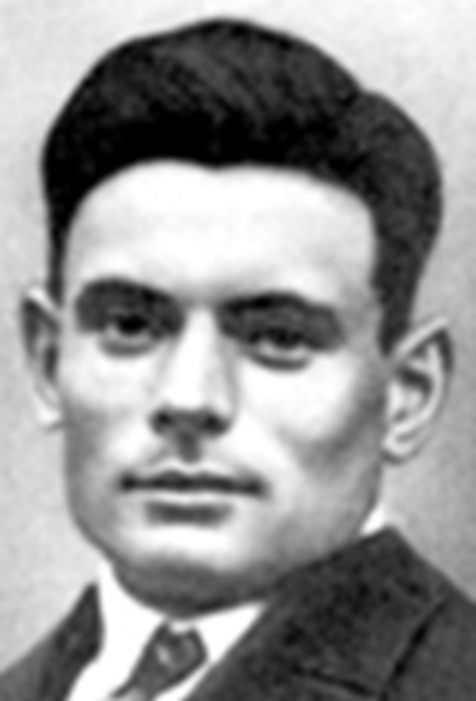
3.30pm; upon receiving word from his daughters that Albert Hofner could not raise anyone whilst at Hinterkaifeck, Lorenz makes the decision to send his two sons, Johan (16) and Josef (Dick, 9) over to the neighbouring farm. It has now been four days since anyone has seen a resident of Hinterkaifeck and people are starting to talk, including his son Josef who attends the same school as Cazilia and mentions her continued absence and the postman about mail piling up. Upon arriving at Hinterkaifeck the two boys proceeded to peer into the windows but, just like all the previous visitors, could not see anyone. After this they headed off around the house until they reached the stables where they pushed against the door but it was locked, this action caused the dog, who was now locked inside, to begin barking. As one last attempt to locate any of their neighbours they then moved closer to the edge of the forest that bordered the farm and yelled out Andreas’s and Viktoria’s names thinking, just like the farmer in Vorderkaifeck, that perhaps they were out cutting wood. When this also met with failure the two boys headed home to tell their Father that they could not find a soul at Hinterkaifeck.
XXI. 4pm (approx.); Once Lorenz’s sons return and tell him of their lack of success in finding anyone at the farm he decides to go to speak with another neighbour, Jakob Siegl, as he has heard that one of his son’s attempted to acquire some lard from Hinterkaifeck and also could not raise anyone. Not long after Lorenz arrives at Jakob’s the two men decide that they need to do a more thorough search of Hinterkaifeck as something is definitely not right.
XXII. 5pm; Before heading to Hinterkaifeck, Lorenz calls on Michael Poll, another neighbour and farmer, asking if he would go with himself and Jakob to check on the ‘Kaifecker’. Michael agrees and they arrive at the farmstead, still with Josef and Johann in tow, only a short while later.
Sidenote: whilst the statements of the three men and Lorenz’s sons are pretty similar there are some discrepancies, especially when you start looking at those given some years after the murders. The events detailed below have been pieced together from those statements and may not be entirely accurate. All sources will be linked at the end for readers to visit if they so wish.
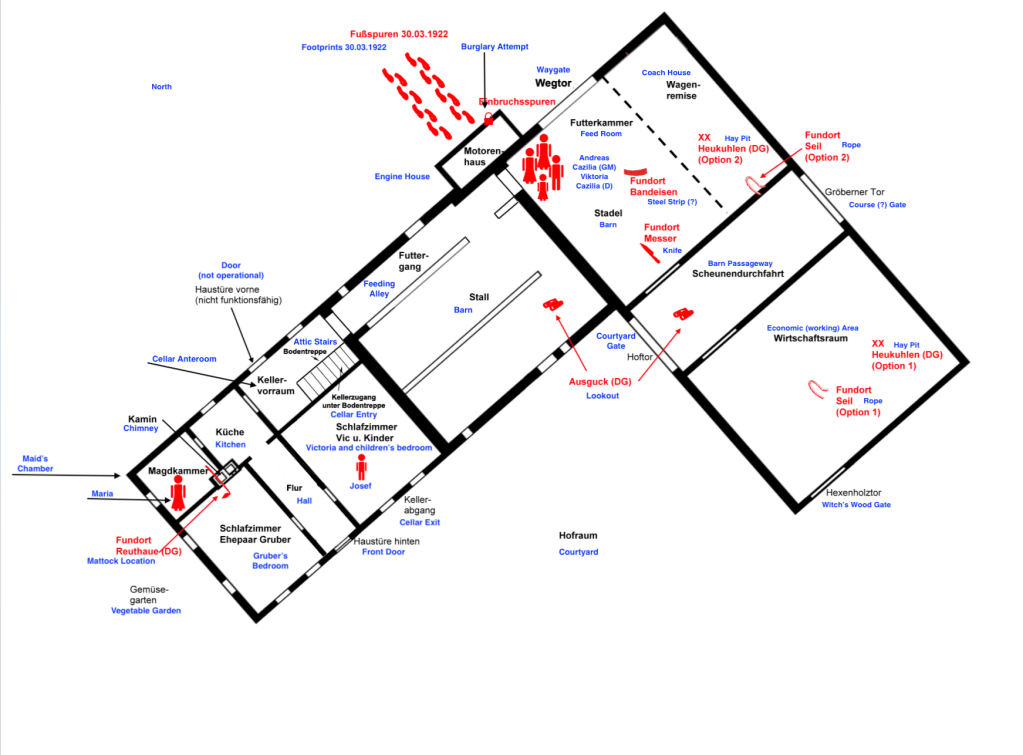
The three men approach the farmhouse at the north side which seems to be where the kitchen door is situated (according to Jakob’s statement) but instead of going to the front door, which Jakob says he was expecting, Lorenz leads them through the courtyard and up to the gate of the barn passageway. Now here Jakob questions Lorenz as he doesn’t think they’ll be able to access the main house this way, however Lorenz merely insists they follow him and pushes open the gate. Whether this is the gate that the two boys had attempted to push on when they had visited only an hour or so previously is unclear but for now we assume that it had been locked until recently.
Once in the passageway they break down the door that leads to the feed room and make their way inside. It is at this point that Michael turns to Lorenz’s sons and says “Boys, if you stay outside it would be better, I once saw a hanged man and that’s not a good sight.” So, at least one of the adults is actually, you know, adulting. However, both Johann and Josef choose to follow the others inside, a decision I’m sure they shortly regretted.
Two things are immediately apparent to the group that enter the feed room; one is that the door to the stable is lying on the floor and the other is the head of a young cow poking into the room from the stable, presumably to investigate the sounds coming from the barn. According to Jakob the first thing Lorenz does is go straight over to the cattle and lead it back into the stable so it can be tied up. Whilst he is doing this the rest of them follow his path through the feed room, they do this a little cautiously as it is now quite dark inside the barn and Michael had seen Lorenz stumble over something in the dim light. You know when it’s dark and you’re in an unfamiliar place you kind of stick your feet out to feel the ground in front of you? Well, this is what Michael was doing when his foot bumped into something. Oh no.
The two men call out to Lorenz that they have found something and, as he’s coming back from the stable, peer closer at the hay underneath the discarded stable door. This is when they see a foot. It is at this point that both Jakob and Michael voice their opinion that they should leave everything as it is however Lorenz not only lifts the door away but also throws the hay to the side to reveal first Andreas Gruber, then his wife Cazilia Gruber and daughter, Viktoria Gabriel. It looks to the three men as though an attempt has been made to stack the bodies on top of one another before concealing them with the door and hay. Once the victims have been uncovered Lorenz then does, another, very unhelpful thing; he moves the bodies. Whilst he [Lorenz] places them one by one further into the feed room and away from the stable door, Jakob and Michael spot an out-of-place pile of hay and, tragically, discover the body of little Cazilia Gabriel.
Sidenote: for Lorenz to have reached the cow and led it back into the stable he would have had to practically walk over the victim’s bodies. In his first statement he even mentions his stumbling against the door and ignoring it, whilst Michael chose to look closer. Also, some sources say that Lorenz’s actions whilst moving through the crime scene are a little suspicious; firstly, it as if he is deliberately messing with any potential evidence and secondly, he seems to know a lot about the layout of the house.
Obviously very shaken, Jakob and Michael express their desire to leave the barn immediately and also suggest that now would be a really good time to inform the authorities. Agreeing with his two companions, sort of, Lorenz orders his son Johann to go to the Mayor of Wangen, George Greger, and inform him of what has happened at Hinterkaifeck so he can summon the police. It is at this point that, very handily, a man arrives on a bicycle which Johann can hitch a lift on. This man is called Josef Kreitmeier and not much information could be found on him, except that he and his Father may have been employed to guard Hinterkaifeck. There does not seem to be any record of their employment and efforts to access both Josef’s and his wife’s statements have so far proved futile. However, if true, perhaps it was merely to protect the property, animals and residents from theft, as the Grubers/Gabriels were known to be quite wealthy. But, also if true, if they were meant to be guarding Hinterkaifeck why did it take four days for the family to be found? How was the attack so successful, from the perpetrators point of view at least? And was the man that Michael Plockl ran from on the night of 1st April one of the Kreitmeier’s? For now, it seems, this part has to remain a mystery. So, Johann is off to Wagen on the back of a bike… not sure where Josef is. Hopefully someone sensible has sent him home.
After Johann left both Michael and Jakob stand firm against the idea of going back into the barn and through the stable, which was Lorenz’s original plan, and insist that they should wait outside for the authorities to arrive. However, he [Lorenz] argues that he has to get into the house and ‘has to go see his boy right away’, that he could still be alive and that he could be starving. By ‘his boy’ he is referring to little Josef Gruber, remember the baby he swore up and down wasn’t his? Yep, that boy. Realising that they’re not going to budge him on this, Jakob suggests that he and Michael walk around the outside of the house, back to the front door, and that Lorenz can let them in from the inside after entering through the stable.
Waiting outside the front door, the two men hear Lorenz approach from inside the house and then a key turn in the lock. Now, remember our mysteriously missing key? And how the Grubers could only lock their front door with the deadbolt? Well, because all three men, including Lorenz, claimed that he used a key to open the door this was something he was later questioned on, multiple times. Even sources today ask the question ‘Did Lorenz have the key all along?’ However, even in his 1931 statement he is still sticking to his story of finding the key inside the house and when questioned about the Grubers losing it replies, ‘That’s a mystery to me, because I know for sure that there was only one key’. So, was Lorenz lying, did he slip up when he used the key to let his companions in? Or did he really find it inside the house, perhaps returned to its rightful place by the real perpetrator of the crime?
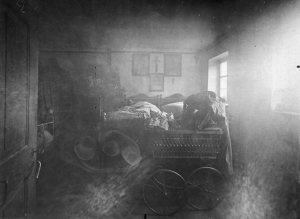
Once inside the house Jakob immediately goes to open the door to his right, which leads to Viktoria’s and her children’s bedroom. Pushing the doorknob down he leans against the door but it doesn’t budge, this is when Lorenz advises him that you have to lift it as it ‘operates from the bottom up’. Once open the three men enter the bedroom, their gaze pretty much straight away falling upon the bassinet; the hood of the bassinet is pulled up but almost completely destroyed as if something heavy has passed through it. Inside they find the body of little Josef Gruber. Looking around the rest of the room they notice that drawers of the children’s clothes are on the beds along with their ‘savings banks’, which we presume to be piggy banks or savings books, and also a wallet. Although this was all lying on the beds Jakob would later note that nothing looked ‘disordered’. In fact, it looked almost as if someone had been organising the clothes, doing the laundry or maybe packing them?
Sidenote: I think at this point it is worth remembering the church ‘donation’ along with the unidentified man, had that money meant to be a ‘running away fund’ for Viktoria? Was she finally trying to leave her abusive Father? Or was there something, or someone, else? This could also tie into the violent quarrel that happened on 30th March.
Sidenote: Both Jakob and Michael claim that they all found Josef together, however Lorenz’s statement has him finding ‘his boy’ first and then opening the door for the other two men.
After this devastating discovery Lorenz tells the others that before he leaves the room he must find a candle and light it for his son. Giving him some privacy, Jakob and Michael make their way into the kitchen where they find a bowl of untouched soup on the stove, not usually a notable find in a kitchen but it certainly feels strange after the discovery of the victims. They also see that the door to the next room is open, and from their position they see a bed quilt on the floor and sticking out from that quilt are a pair of feet, still wearing shoes. They call for Lorenz and he appears from the hallway only seconds later. Moving past the other two he enters the room and pulls back the quilt, revealing the face of a woman who none of them know. She would later be identified as Maria through some documents found in the room, with her sister confirming this the next day.
Leaving the maid’s chamber, the three men then go to check the last room, that of Andreas and Cazilia Gruber, which seems as though nothing is out of place; even the beds look undisturbed. (This would later help authorities to decide that it had only been little Josef Gruber in bed at the time of the murders.) After clearing this last room Lorenz then suggests that they feed the animals whilst they wait for the police to arrive as they must be starving after days without food, however both Michael and Jakob refuse, saying that he [Lorenz] shouldn’t touch anything else either. Jakob goes on to say that after checking on the animals in the stable he doesn’t think the animals are that hungry and it appears that someone must have been looking after them. An excerpt from his 1952 statement;
‘I would like to say in advance that Pöll and I told the sled builder as soon as we found the corpses and he began to work on them that he should leave the corpses as they are. Schiebebauer replied that he had to see this carefully. Pöll made him (Schlittenbauer) because of his behavior at the crime scene to the accusation that he killed the people in Hinterkaifeck himself. From the kitchen I also went into the stable. As a farmer, the cattle did not give the impression that they had been without food for several days. I even believe that there was a mother calf and it would certainly have cried loudly if it had not been fed one or more meals. There were also about 8-week-old piglets in the barn. They too were generally quiet. Sleigh builder now said that I should climb up the threshing floor and throw hay down so that the cattle could be fed immediately. But Pöll and I didn’t take part anymore and told the sledge builder that we were going home and reported to the gendarmerie.’
Despite the protestations of his companions Lorenz heads off down to the cellar to fetch milk for the pigs before gathering what hay he can for the cattle. Realising he isn’t going to listen to them Jakob and Michael leave the farmstead, stating that they will return the next day to speak to the authorities.
XXIII. 6pm; Around this time people begin to arrive at the farmstead and unfortunately it isn’t the Mayor with accompanying police. It seems that on their way to speak with the Mayor young Johann and his chauffer Josef have been yelling out to everybody they see that everyone at Hinterkaifeck has been murdered. Great. Now, for what it’s worth, Lorenz does his best at keeping people from going into the house and even sends someone to Waidhofen so that the relatives of the victims can be telephoned.
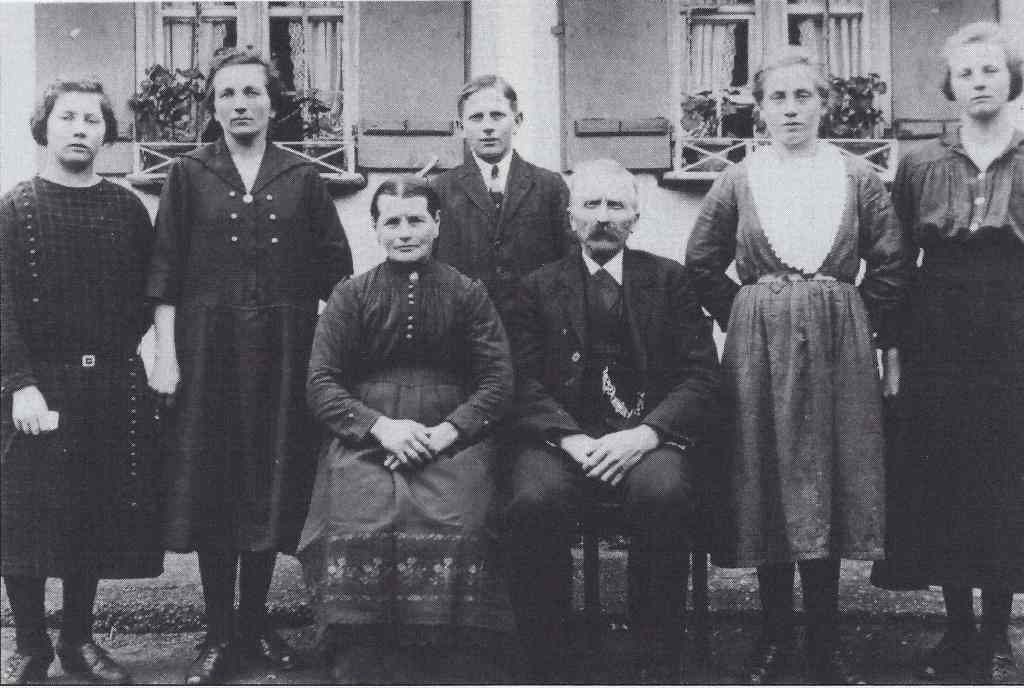
Sidenote: according to Lorenz nobody managed to enter the farmhouse or barn before the authorities arrived however some sources disagree with this saying that the crime scene was even more compromised by people walking through the home and moving things around.
Thankfully it is not long after that the Mayor arrives along with two police officers from Hohenwart; George Goldhofer and Alois Blank [Plank?]. Now the Mayor, George Greger, had not been entirely convinced of young Johann’s story but upon entering the farmhouse and it’s barn he, and the accompanying officers, quickly realise that they are going to have to call in some kind of cavalry. The larger station at Schrobenhausen is quickly informed who then reach out to the District Court, the Munich Police Department and the Public Prosecutors Office in Neuburg. Soon after their arrival Lorenz leaves the farmstead and returns home, agreeing that he shall give a full statement the next day.
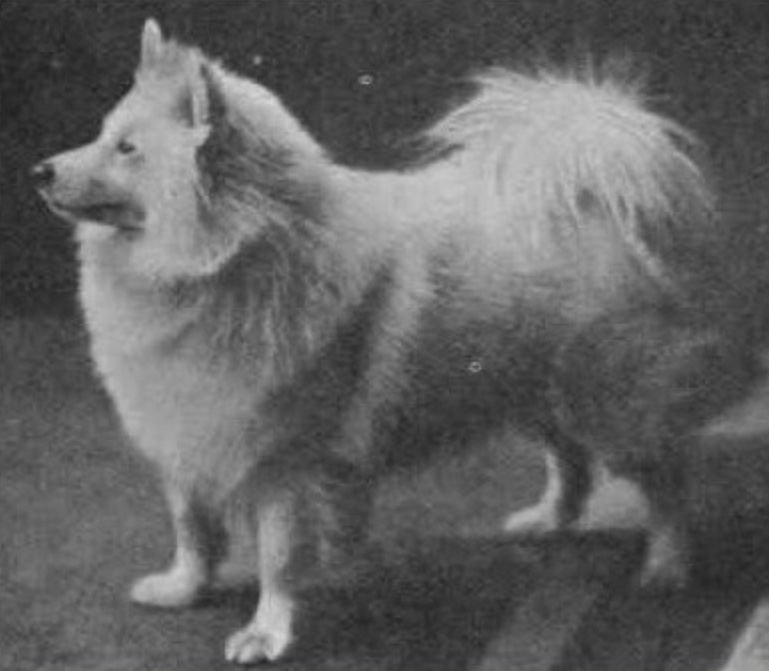
Sidenote: Of course, we cannot forget about the dog; he’s found tied up in the stable, alive but with an injury to his head, some statements specifying one of his eyes. Albert Hofner made no reference to the dog being hurt, whether this was because he didn’t get close enough to notice or if the dog sustained this injury between Albert leaving and the others arriving, we cannot know. It could have happened during the attack on the family but the dog survived the blow. Or perhaps the dog was useful to the murderer, keeping the illusion of the victims still running the farm until the perpetrator decided to leave and didn’t want the dog barking every time someone visited the farm. Whatever the reasoning, happily he survived and he went on to live out his days with Karl Gabriel’s parents.
In Part Three we will take a walk back through the crime scene but this time along with the authorities as they gather evidence and autopsy the victims, trying to piece together just what had happened at the Hinterkaifeck Farmstead.
Sources:
- https://www.hinterkaifeck.net/wiki/index.php?title=Hauptseite
- https://en.wikipedia.org/wiki/Hinterkaifeck_murders
- https://www.bod.de/booksample?json=http%3A%2F%2Fwww.bod.de%2Fgetjson.php%3Fobjk_id%3D1762339%26hash%3D79e21d4941a60199728258c903f8d9f4
- https://www.hinterkaifeck.net/wiki/images/Grundriss.gif
Proudly powered by WordPress



